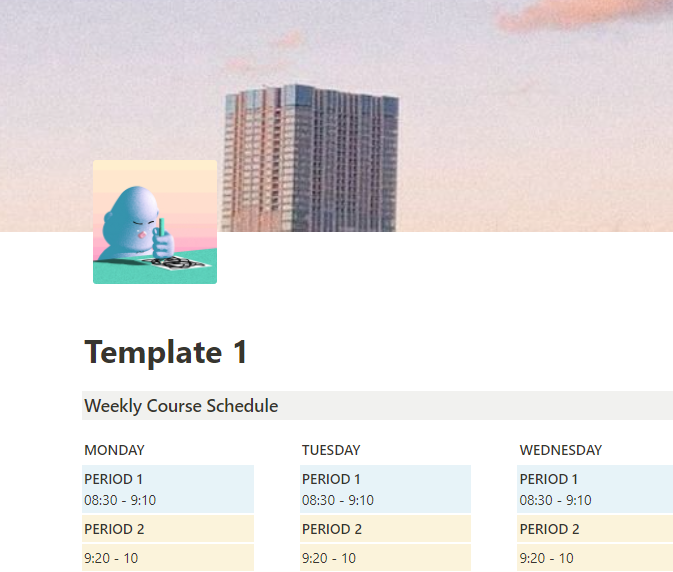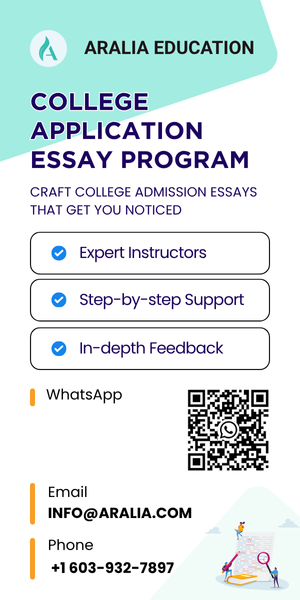Rising Sophomore: Back-to-school Checklist
Academic
- Start registering for more challenging classes compared to last year
- Talk to college counselors about interests, potential majors, and schools
- Consider applying for Pre-College Programs to enhance your academic ability
- Prepare to take the PSAT or PSAT 10 test
Extracurricular Activities
- Sign up for new extracurricular activities that fit your interests and future development
- Advance to leadership positions in the current clubs and organizations you are in, or create a new club
College Application
- Start collecting college and university information
- Schedule school tours to get a feel of the school and talk with admission representatives
- Plan for summer internships
1. For rising sophomore, start registering for more challenging classes compared to last year
High school is an important time for students to be more well-rounded and to prepare for college applications. One aspect of a well-rounded student is academics. Sophomore year is a crucial year to build a strong foundation for later years, because academic results of the prior year will determine future classes. In terms of academics, students should consider their academic interests and development direction while making decisions about class selection. Therefore, we suggest in 10th grade, to choose challenging classes like honors or AP. Remember not to overload yourself with coursework and make sure that the courses you are taking are challenging enough but still allow you to maintain a relatively high GPA. Below is a sample schedule from 9th to 12th grade for students at Dana Hall School
9th Grade Schedule | 10th Grade Schedule | 11th Grade Schedule | 12th Grade Schedule |
Literature and Composition I Geometry Physics 9 French II Honors Spanish I Studio Art | Literature and Composition II AP Computer Science Algebra II Honors Chemistry Honors Middle Eastern Studies Latin III | Literature and Composition III Precalculus Current Topics in Life Science US History AP Spanish IV Photography I | Found Voices: Creative Writing AP Calculus BC AP Biology Spanish IV/V AP Art History Independent Study: Drawing and Painting |
Even though these are the schedules of 4 different students throughout their years at Dana Hall School, we see that students typically start taking AP courses in their sophomore year, along with several honors and advanced classes compared to the prior year. Student’s class selections progressed from the previous year, like advancing to Literature and Composition II, or taking Algebra II and Precalculus in preparation for AP Calculus BC. As a result, the student in 12th-grade has several AP courses under her belt, along with several advanced and independent study courses.
Upon completing freshman year, if you feel you need more improvement in terms of academics, you should consider attending additional classes for that subject, or review the class in your free time before school starts. Or, you can also register for Aralia’s academic improvement courses. Aralia’s instructors are inspired teachers and professors who are committed to student success. They are recognized in their field or are currently teaching at top high schools and colleges/universities in the US.
2. Talk to college counselors about interest, potential majors, and school
It’s never too early to discuss college with your college counselors. The earlier you plan for your high school year, the more time you have to prepare potential classes and important materials for your college application. Therefore, we suggest that this time, you should start talking to your school’s counselor. They will be the direct resource to answer any questions about available majors and college information. In addition to college counselors, you should also talk to your advisor at school to ensure you communicate your academic and non-academic goals. Together, you draft a plan to ensure you can make good progress on all your goals.

3. Consider applying for Pre-College Programs to enhance your academic ability
The last thing in the academic section we want to mention is pre-college programs. Pre-College Summer Programs at universities are immersive, collaborative, and transformative summer experiences. By attending a Pre-College Program, you have an opportunity to experience college life at your dream school, while exploring and diving deeper into your passions under the guidance of renowned professors. The Pre-College Programs indirectly give students an advantage in college applications, because students will gain insights about the school, for example, understanding the school culture or how they will fit into the school environment. Therefore, we always suggest students who want to find a dream school, or a dream major, apply to a Pre-College Summer Program.
4. Preparing to take the PSAT 10 or the PSAT/NMSQT
PSAT/Preliminary SAT, also known as NMSQT National Merit Scholarship Qualifying Test, is the practice version of the SAT. Many students take this test during 10th and 11th grade to qualify for a National Merit Scholarship – $180 million are awarded each year.
The PSAT is offered every year, and students can take up to 3 PSAT tests each year in high school. However, the majority of students decide to take the PSAT 10 before taking the PSAT. The PSAT 10 is only for 10th graders and is offered during the Spring of 10th grade.
We recommend students take this test for a couple of reasons. The PSAT 10 test is great for students who want to practice for the PSAT during their junior year, making you eligible for the National Merit distinction (The PSAT 10 doesn’t qualify you for the scholarship). Taking the test during your sophomore year will help you evaluate your score and plan to make an improvement plan. In addition to the scholarship, the PSAT 10 test is also good preparation for the actual SAT. The PSAT 10 and SAT have similarities in their scoring system and skills tested; therefore, acing the PSAT 10 will directly help you do well at the SAT.
Overall, a good PSAT score ranges from 1210-1520, with each score (Math and Reading & Writing) starting from 620+. Students will also receive subscores with an analysis of their PSAT performance. For more information about scoring, click here.
5. Sign up for new extracurricular activities that fit your interests and future development
While you are busy fulfilling academic requirements, it’s essential to keep up with extracurricular activities because colleges look for well-rounded students in both academics and extracurricular activities. But don’t spread yourself too thin, instead focus on areas of personal interest and potential advancement. Assuming that you haven’t started some extracurricular activities in 9th grade, 10th grade is the time for you to sign up for any activities of interest to you. Examples of activities are sports, visual arts, performing arts, academic clubs, and social activities. You can sign up for junior varsity teams to gain more practice, then move forward to varsity teams for competitive sports. For performing arts and visual arts, students should photograph all their progress. If you decide to pursue art in the future as a college major, it’s important to have photographs of your artwork and its progress from beginning to end for your portfolio.

6. Start collecting college and university information
During sophomore year, students should start gathering information about potential universities, as well as majors. The reason why you should start this year is that next year, you will have to worry about other parts of the college application like: recommendation letters, personal statements, studying for standardized tests, etc. Starting to collect information in the sophomore year gives you more time to understand the ins and outs of your dream colleges/universities. When you begin collecting college and university information early, you can plan for scholarship and grant opportunities. You can collect information through your school’s college counselors as well as through your own research. There are multiple websites online that help you during the research process like US News, Niche, and Forbes.
After general searching, you should create a table of information with criteria for evaluation. Criteria can be location, size, accommodation, facilities, student support, etc., to help you narrow down the school list and focus on the ones you are most interested in. We published a College Application Planner template to help you track all your college information for comparison and access online on your phone and laptop.
7. Schedule school tours to get a feel of the school and talk with admission representatives
During the summer vacation at the end of your sophomore year or during the spring break, you can visit universities and colleges in person to get a feel of the campus and connect with the admission representatives. Before attending a college tour, prepare a list of questions to ask professors, school tour guides, college students, etc.
8. Plan for summer internships
The last thing you can prepare is to apply for summer internships. We have an article discussing high school internships in detail. Once you decide and want to explore the career you are interested in, you can start searching for a summer internship during the Spring semester. There are many internships that we have found across all fields: STEM, Art, Computer Science, and Business.

FREE 2025 NOTION TEMPLATE FOR HIGH SCHOOL PLANNING
With the template, you will be able to have an overview of your high school schedule, as well as prepare for future deadlines/college applications/etc.
We are currently improving the Notion template, so if you have any suggestions, feel free to contact us at info@aralia.com.











